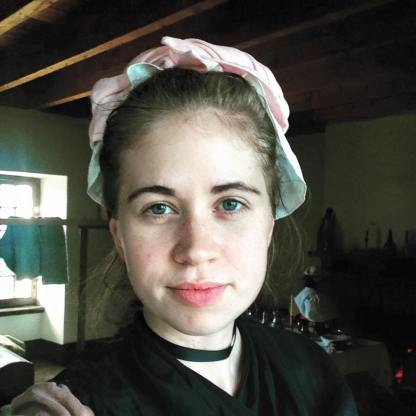Have you ever found yourself encountering an injustice in the world which you feel you must fix? Have you had the experience of fighting for that change until you run out of energy? Have you gotten to the point where you walked away? Me too.
#MeToo:
The flood of “me too”s which inundated social media this past week sure upset me. It upset me because it is painful to know that people I love, and a huge number of people I have never even met, have been hurt. It upset me in a more complicated way as well: it reminded me that the way we treat women’s stories today is an extension of how we treated women’s voices in the past, and how we treat women’s voices of the past.
Living history is a community in which many people feel like they have permission to revert to some mythical concept of historical gender roles (which are seldom rooted in close research). In the context of military reenactments, this manifests particularly strongly in the idea that women play merely supporting roles, which go under-researched, under-appreciated, and under-discussed. Though this is changing, some combination of our culture’s ideas of what is “important” in history, and its latent sexism, means that it persists even in the most progressive settings.*

One of the conversations which occurred on my Facebook feed about #MeToo revolved around living history, and the ways in which harassment and sexual abuse occur within the reenacting community. I’m glad this conversation happened, but I found it distinctly upsetting, as it brought to the surface a profound frustration which I had put aside several months ago when I left my history job for grad school.
It reminded me that history and living history too often see women as inferior. Too often living history re-tells stories in which women’s voices are perpetually drowned out. #MeToo highlighted for me that when I want to scream and fight for my friends who have been catcalled, and touched, and asked to do things they do not want to do in situations where they cannot refuse, I am fighting the same fight as when I ask for stories of women in history to be presented alongside those of men. Drowning out women’s voices in history is an act much like drowning them out in police reports and newspaper articles. It contributes to a mass conspiracy of silencing which #MeToo was an attempt to break out of.
The effort to amplify and share the voices of women in history is one of those causes about which I feel so strongly that I cannot contemplate it without seeking a way to correct it. When I say that women’s history is important, it is because when we do not tell it, there are more people who “just didn’t know it was like that” and who wonder “why didn’t you just say something?” When I left my history job back in May, I had used up all my energy to fight. I paused my efforts to advocate for these stories because it felt like going down to the station to report the injustices of history and not being believed by the officer on duty. Desperately in need of a break, I have gratefully pushed it to the back of my mind for five months. It resurfaced this week, and I find that I am as mad as ever.
It’s good to Fight for What is Right, but boy did I not miss how angry this makes me, and how blue it makes me feel. I’ll keep fighting this fight, but if #MeToo has convinced you that women’s voices are there to be heard, today and in the past, then I would gladly accept your help.
*I count myself in good company with others who are working to make this no longer the case, but I’m not sure that any of us are there yet.